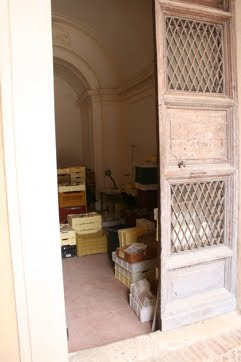This week brought us the news that the crowd-funded excavation at Flag Fen had finished. Peterborough Times quoted Lisa Westcott Wilkins, managing director of DigVentures that run the excavation, who said that they achieved what they wanted to achieve, and they had nothing but positive feedback from people who participated. They stated that the project was a ‘success’.
A reporter from Peterborough Times, their feature editor, visited the excavation and got into cleaning a trench. He joined a team of 25 people who were made up of DigVentures members, Birmingham University archaeologists, total beginners, and the excavation dog called Fergus. During the first day the finds included a fragment of a 5,000 year-old flint axe, animal bones and holes left by the now-vanished timbers used in Flag Fen’s causeway.
On the day the reporter was entertained by resident flint knappers evocative descriptions but he described the hard work in the brutal sunshine in 30 degree heat. Nevertheless, he considered documenting what was found the previous day in the 20-metre long trench by the 10 or so people who had paid to dig “the less inspiring aspect of archaeology away from the uncovering”. But he noted that the enthusiasm of experts on the day, including DigVentures managing director Lisa Wescott Wilkins and Time Team regular and project manager Raksha Dave, remained undimmed.
It is interesting to note that Martin Carver who gave a talk as part of the project in the evening of that same day was somewhat pessimistic about local participation. He pointed to his own experiences in similar project in Scotland and at Sutton Hoo; at the latter site it took three or four years before anyone from the surrounding area came to see the excavation. However, he pointed out that there is a big population in Peterborough and when the schools will be involved, the children will bring their family and parents. This may suggest that people who happily may take part into local archaeology groups are less likely to pay for their local pastime. Considering the success of garden test pits and Michael Wood, one suspects that people come more easily when the site is not over-familiar and they can experience a new famous site.
The day by day news feed can be found on the DigVentures web site. It is clear that the sunny weather helped a lot since the similar weather as early in the ‘summer’ would have resulted in misery for all parties. Now there is a continuous thread of upbeat tweets. The project also got good coverage from the BBC with a prompt about the closure of the dig.

